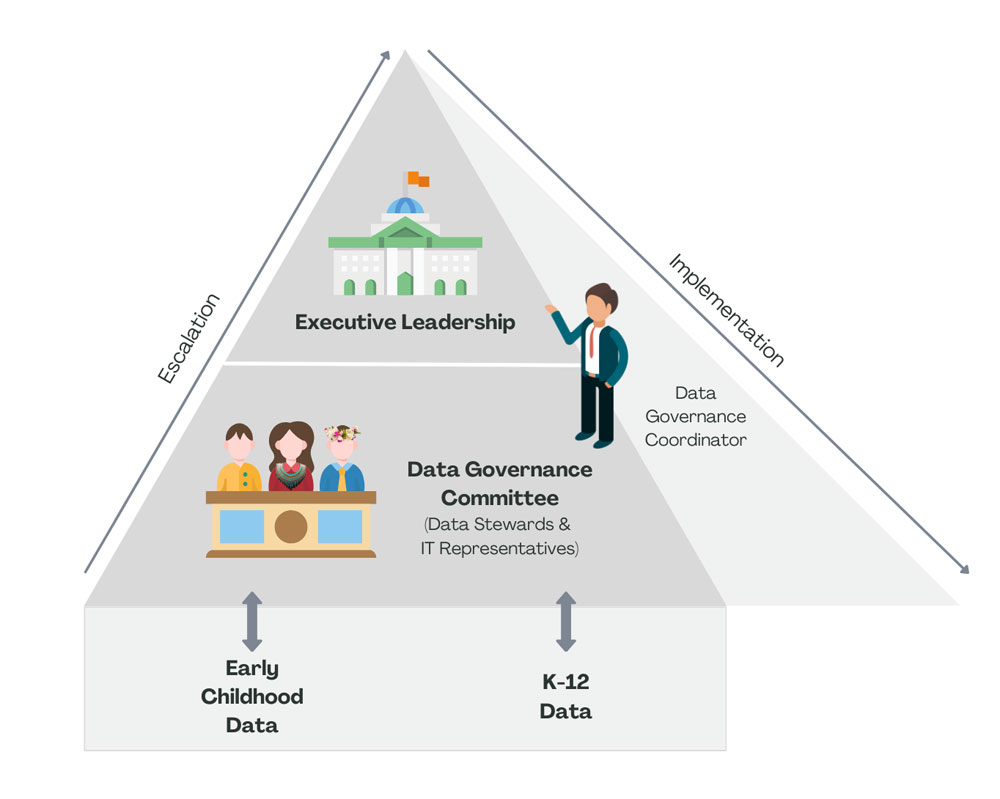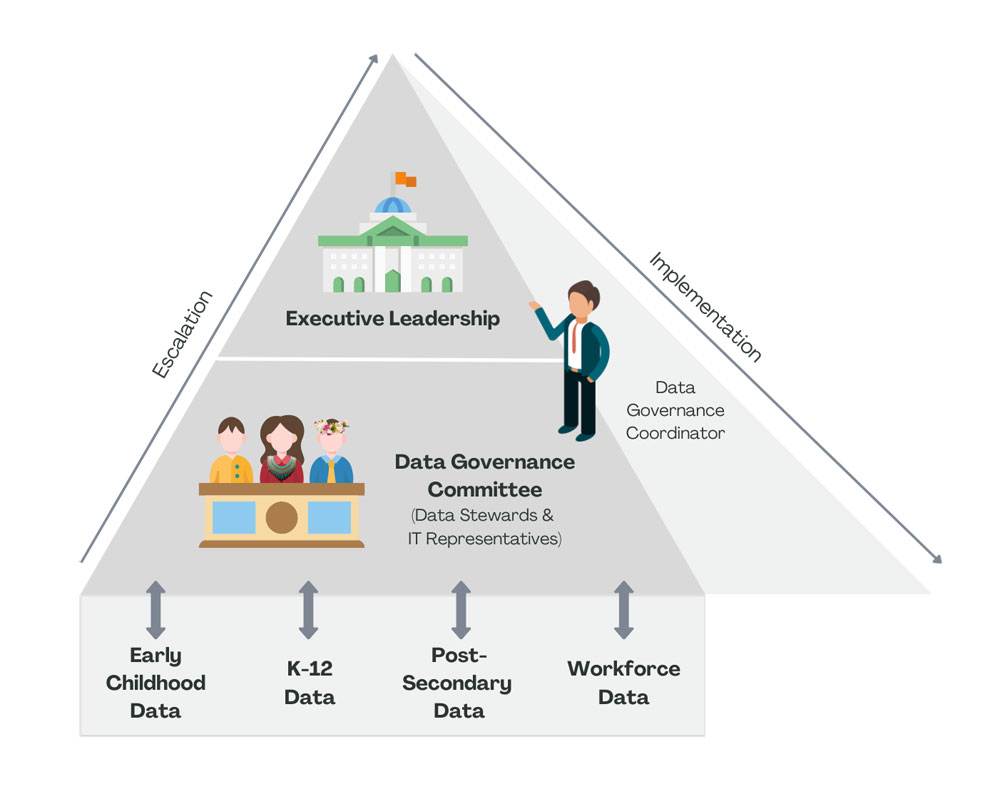Data Governance
Data Governance
Data Governance is the practice of managing the availability, usability, integrity, and security of the data used by each partner organization while also supporting the overall goals of the partnership.
The purpose of a data governance program is to ensure that data is managed effectively, efficiently, and securely. This includes establishing policies, procedures, and standards to ensure that data is accurate, consistent, and available for use when needed.
The scope of the interagency data governance can vary depending on the type of data the agencies use and the needs of the each organization. Generally, data governance will cover all aspects of data management, including data architecture, data quality, data privacy, data security, and data lifecycle management.
The value of the an interagency data governance lies in the ability to make informed decisions based on accurate, reliable, and timely data. Implementing data governance well improve decision-making, reduce costs, increase efficiency, improve data quality, enhance data security, and improve compliance with regulations.
Users of data governance can include anyone who uses or interacts with data in the their organization. This can include executives, managers, analysts, data stewards, and IT professionals.
Priorities for agency data governance may vary depending on the organization's goals, but some common priorities include establishing data ownership and accountability, developing policies and procedures for data management, defining data quality standards, ensuring data security and privacy, and implementing monitoring and auditing processes to ensure compliance. Additionally, it's important for data governance to align with the organization's overall business strategy and goals.

P-12 data governance two-tier structure

P-20W data governance two-tier structure
Committee
Committee Members of P-12 Data Governance (alphabetically)
| Babauta, Michael | Finance |
| Bautista, Louie Dean | Student Information |
| Cabrera, Probio | EdFacts Reports & Staff Demographics |
| Calvo, Ruth | Student Information |
| Camacho, Albert | IT Support |
| Cubangbang, Jeaniffer | SLDS Technical Manager |
| Fujihira, Nora | Special Education |
| Indalecio, Shawna | DGC Support Staff |
| Kyonka, Josiah | Mental Health |
| Liwag, Rizalina | DGC Executive Leadership |
| Loste, Augustus | Math |
| Nathrani, Riya | Advance Placement |
| Ngirmekur, Ferdinand | IT Support |
| Orsini, Celine | School Report Cards |
| Orsini, Vinni | English Language Arts |
| Vacant Position | SLDS Data Governance Manager |
| Pladevega-Sablan, Annette | SLDS Project Director |
| Rey, Femie | Research & Evaluation |
| Sablan, Jolene | Head Start and Early Head Start |
| Salas, Dhalian | DGC Support Staff |
| Tenorio, Jesse | DGC Executive Leadership |
| Tigilau, Fasefulu | State Assessments |
* Photos of current members
* List of perpetual committee members
Products
Products of Data Governance
Call to Action
Minutes
- October 2023
- September 2023
- August 2023
- July 2023
- June 2023
- May 2023
- April 2023
- March 2023
- February 2023
- January 2023




















